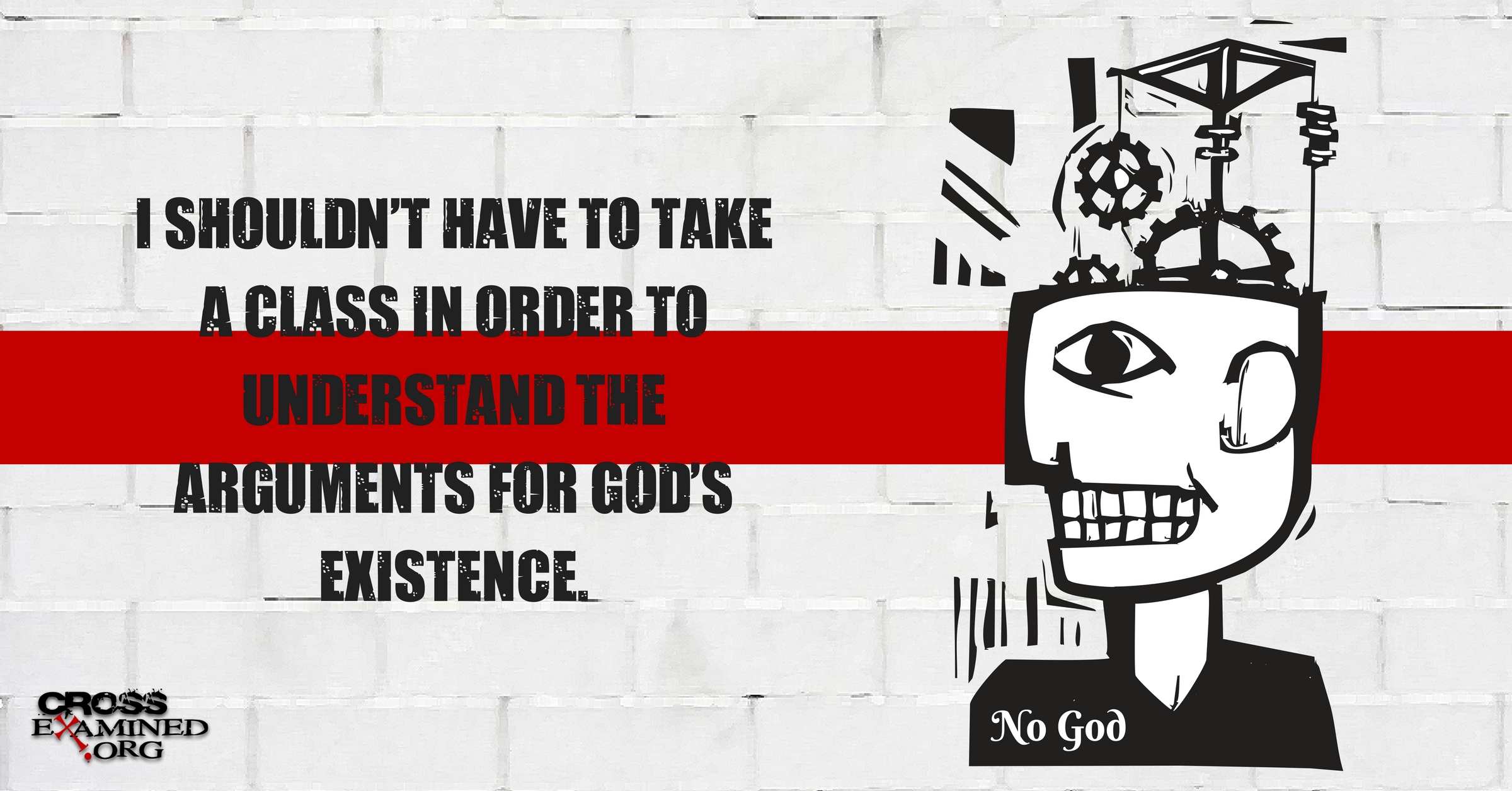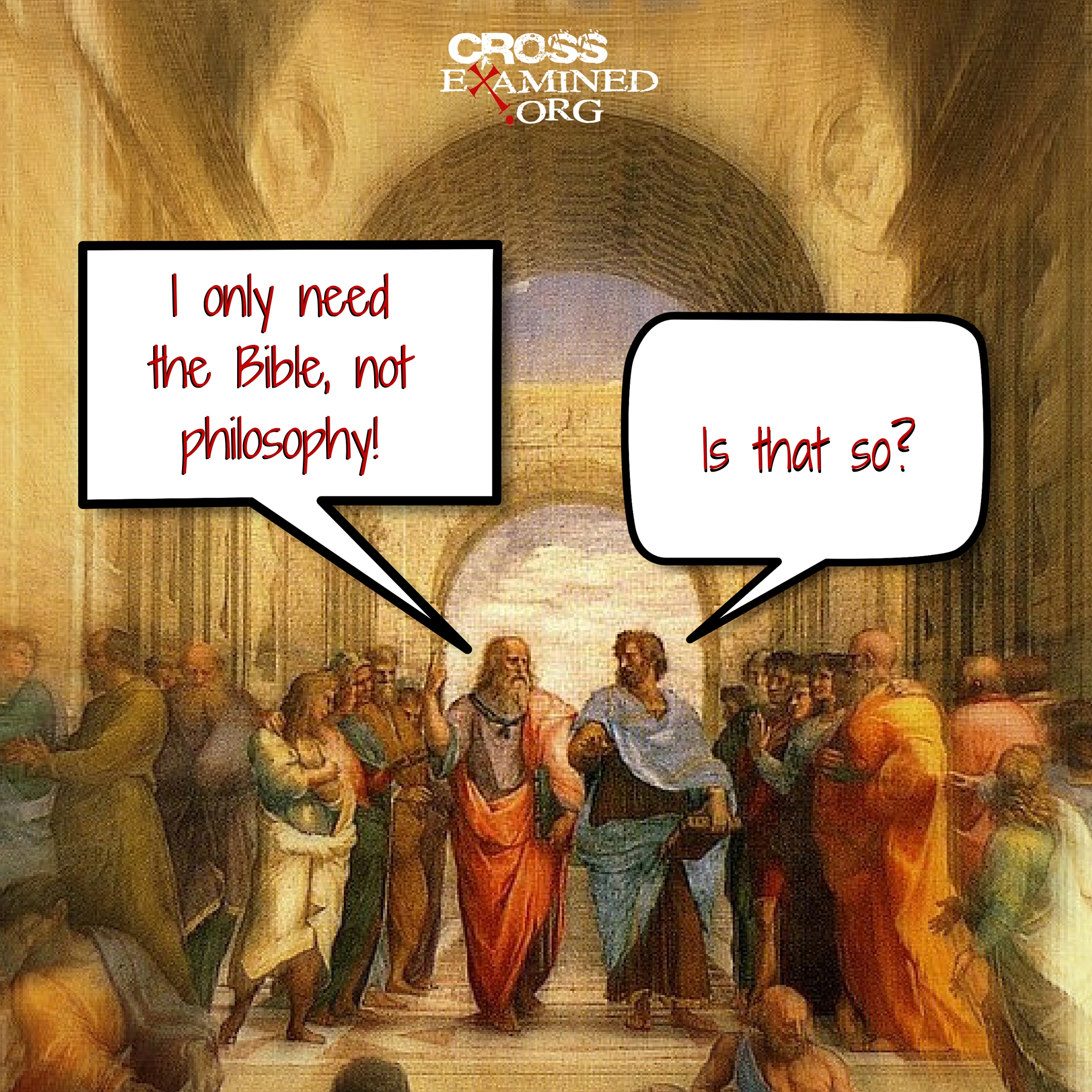By Adam Tucker
As anyone who attends the Southern Evangelical Seminary National Conference on Christian Apologetics knows, SES does its best to offer well-rounded apologetics training that meets the needs of the novice while also challenging those who are more advanced. Our goal is to challenge the status quo of popular Christian thinking about apologetics and theological issues while at the same time being true to what makes SES unique in the evangelical world.
One of those unique aspects was on display at this year’s NCCA in the Friday night debate between Dr. Richard Howe, SES Emeritus Professor of Philosophy and Apologetics, and Dan Barker, Co-President of the Freedom from Religion Foundation. SES unashamedly builds its apologetics and theology proper (i.e., the nature of God) largely on the philosophical underpinnings laid forth by 13th century theologian Thomas Aquinas (who basically used portions of Aristotle’s thinking to provide a systematic approach to Christian apologetics and theology). This “classical” way of thinking about God’s existence has, until the last 200-300 years, been the standard way to do apologetics and to think about God. Sadly, for various reasons, it was largely abandoned, though it was never actually shown to be false. SES is convinced that this abandonment has led to confused thinking about how to actually do apologetics, which leads to shallow (if not false) thinking about who God is. This can lead to dangerous consequences for evangelism. These are all very important issues about which SES is quite passionate. In fact, it was none other than SES co-founder Dr. Norman Geisler who concluded his NCCA session by stating that evangelicals need an inoculation of Thomism (the thinking of Aquinas).
This is exactly the approach Dr. Howe took in the debate. There are plenty of resources from which one can pull in order to learn about popular arguments for God’s existence. Those are numerous and readily available. Instead, Dr. Howe offered a classical argument for God (a la Aquinas) upon which all the traditional attributes of God necessarily follow (an argument included in the SES ebook most conference attendees should have received via email).
We understand that at least a portion of the debate attendees were rather upset with the debate’s outcome. Honestly, we share your frustration. The debate was designed to be about the existence of God, a topic Dr. Howe admirably argued for but one essentially ignored by Mr. Barker. Instead of engaging with the topic at hand, Mr. Barker attempted to derail the discussion with worn out fallacious appeals about how “nasty” God is (a topic we directly addressed in a Saturday breakout session). Dr. Howe didn’t take the bait because that was not the topic of discussion, and with limited time one can only discuss so many things. Rather, he took the approach of showing Mr. Barker’s ignorance of such classical thinking. In other words, Mr. Barker is writing books promoting his atheism and doing “anti-apologetics” while completely ignoring the classical thinking that formed the intellectual foundation of Christianity. It should have been apparent in the debate that Dr. Howe was extremely successful in showing Mr. Barker’s lack of understanding in the subject, and Mr. Barker failed to address in any substantial way Dr. Howe’s arguments. Therefore, it should have been clear that Dr. Howe easily won the debate. He’s the only one who addressed the debate’s topic.
Mr. Barker’s basic response to Dr. Howe was to claim he shouldn’t have to take a class in order to understand the arguments for God’s existence. In Barker’s estimation, if God exists it wouldn’t be that difficult to know. This is simply a species of the argument from divine hiddenness (i.e., if God exists, then His existence should be obvious to everyone). Ironically, we’ve received the same response from some Christians who seem to agree with Barker in this respect. I believe such a response is very problematic. Allow me to illustrate.
My seven-year-old is a pretty smart guy. He makes good grades, is a math wiz and can recite numerous sports statistics. He even understands that when his allergies are acting up he needs some allergy medicine, or if he has a fever, he knows he needs some Tylenol. But exactly how much medicine should he take? How will those medicines interact with other medicines he may be taking or medical conditions he may have? How did that Tylenol come about in just the right combination of chemicals so as to help rather than harm him? He doesn’t know the answer to any of these questions.
I know more than my son and can answer some of those questions. My wife, on the other hand, is a clinical pharmacist. She knows the detailed answers to all of those questions and more. I recall helping her study for her pharmacy boards many years ago. The chemistry she had to study, the names she had to pronounce and recall, and the drug interactions she had to memorize were mind-boggling. We appreciate, and utilize often, the expertise of pharmacists like my wife. In fact, I’ve never heard anyone say, “I reject the study of pharmacology because God wouldn’t make chemistry and the human body so difficult to understand that someone must take a class to be trained. Those pharmacists should just stay in their ivory towers and quit confusing us with their terminology and study.”
Similarly, my seven-year-old can know that nothing comes from nothing, and right now he’s content with knowing that God is the cause of everything. But can he answer challenges from atheists like Dan Barker, Richard Dawkins, Bertrand Russell, or J.L. Mackie? Can he rightly refute the claims of the cults and their misunderstanding of God? Can he adequately respond to popular aberrant doctrines taught by some influential evangelicals? Many questions about God raised by both atheists and Christians require a good deal of background knowledge and, dare I say, philosophy in order to appropriately answer. The fact the someone is a Christian or has read one (or several) popular apologetics books does not necessarily make them an expert on the deeper issues that often need to be addressed when such questions are asked or challenges are raised. And it is simply a fact of reality that many of these deeper issues are difficult to understand (due in part to the abandonment of the classical Christian thinking mentioned above). As Edward Feser observes,
“Due to intellectual error and the complexity of the philosophical issues, [as mere humans we] sometimes fail properly to understand the main arguments for God’s existence, or mix all sorts of errors into whatever knowledge of God we do have. Due to the weaknesses of our wills, we also fall into moral error. And when moral and intellectual errors multiply throughout a culture, the resulting general social environment may make it difficult for a given individual living within it to avoid more numerous and more serious moral and intellectual errors than he otherwise would have been prone to.”[1]
If we understand the need for intense and difficult study in order to comprehend the inner workings of the human body, why would we expect less intense study when learning about the infinite Creator of the human body? To paraphrase Dr. Feser, it’s actually not terribly difficult to demonstrate the existence of God, but it is often very difficult to clear away from someone’s thinking the mounds of bad philosophy that more than likely they simply have absorbed from the culture in order for them to be able to understand the arguments. This was on full display in the debate as Mr. Barker demonstrated his ignorance of the relevant subject matter.
Yes, God’s existence is obvious enough that my seven year old can understand the basics, but we’re not all seven years old. In order to understand the details, we need to put aside childish thinking (1 Cor. 13:11) and devote time to thinking deeply about reality and the conclusions that follow. We should also appreciate those who have devoted their lives to studying these things in order to help equip the rest of us and not be surprised if we don’t instantly understand every detail they communicate. As a seminary hosting a conference, our goal is to challenge our audience to go deeper. I don’t immediately understand half the things my wife talks about from her day at work, but I sure am grateful that she knows what she’s talking about and that she is willing to teach me if I’m interested in learning.
I want to challenge my brothers and sisters in Christ to not think like an atheist. Do not be content with what is often incomplete and unreflective thought. Our faith (and our knowledge of God’s existence) must be built upon deeper foundations that are not so easily disturbed by the tired old fallacious comments made by someone like Mr. Barker. We can’t believe something about God simply because it makes us feel good or it’s easier to think about that reality. The fact is, as was mentioned above, answering Mr. Barker with simple or pithy slogans from pop-Christianity or pop-apologetics will not get to the heart of the matter. In fact, it may even make the situation worse by not first properly defining and understanding terms and concepts relevant to the discussion. Such a failure in thinking can often lead to misunderstanding, a false sense of security, or even outright heresy. We must be careful to build our understanding of God upon reality rather than with our emotions and oft-times misdirected thinking.
Some of us are closer to my seven years old than we should be regarding our knowledge of apologetics, while others are closer to my pharmacist wife. But all of us are capable of learning from each other and going just a bit deeper each year. That doesn’t mean we will or even have to, understand the deeper philosophical arguments and the like (I certainly don’t plan on studying pharmacology any time soon!). But it should at least mean we recognize their existence and appreciate that we can learn from those who do understand them (and point unbelievers to them when needed). We are all on this journey together, and we’re at varying places along that journey. That’s great as long as we all remain teachable and willing to learn. As Mortimer Adler notes,
“Not only must we honestly announce that pain and work are the irremovable and irreducible accompaniments of genuine learning, not only must we leave entertainment to the entertainers and make education a task and not a game, but we must have no fears about what is “over the public’s head.” Whoever passes by what is over his head condemns his head to its present low altitude; for nothing can elevate a mind except what is over its head; and that elevation is not accomplished by capillary attraction, but only by the hard work of climbing up the ropes, with sore hands and aching muscles. The school system which caters to the median child, or worse, to the lower half of the class; the lecturer before adults-and they are legion-who talks down to his audience; the radio or television program which tries to hit the lowest common denominator of popular receptivity-all these defeat the prime purpose of education by taking people as they are and leaving them just there.”[2]
SES will never diminish or ignore our responsibility to become better communicators and seek constantly ways to clearly and effectively break down and explain complex topics. And there will be times when we don’t do that as well as we’d like. In the process, however, may we all show grace to one another and work together to help raise up the church as a whole in loving God with all their minds. In a desperately lost and confused world, the truth and clarity of the Gospel must be communicated and defended now more than ever. We are honored to partner with each of you in that endeavor.
Interested In Going Deeper?
For more on a brief introduction to the importance of Thomism, read Dr. Doug Potter’s article.
For more on classical apologetics, read Dr. Richard Howe’s article.
Be sure to watch my NCCA debrief with Dr. Howe HERE.
Consider the SES Lay Institute Apologetics and Biblical Studies courses.
SES also offers several certificates (for credit) or the ability to audit classes (not for credit).
Notes
[1] Edward Feser, “Modern Biology and Original Sin, Part II,” accessed October 27, 2017, http://edwardfeser.blogspot.com/2011/09/modern-biology-and-original-sin-part-ii.html. (Since all truth is God’s truth, it should be irrelevant to the reader that Dr. Feser is a Catholic. We can agree philosophically even if we disagree on other theological matters.)
[2] Mortimer Adler, “Invitation to the Pain of Learning,” accessed October 27, 2017, https://www.monticellocollege.org/sites/default/files/liberal-arts/invitation_to_the_pain_of_learning.pdf
Original Blog Source: http://bit.ly/2h3YqMr





